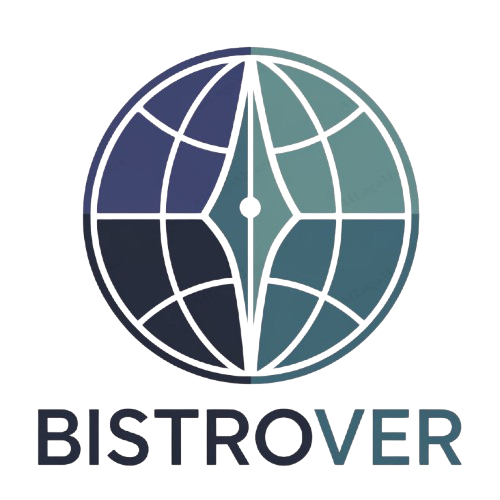Healthcare Sharing Plans for Self-Employed and Small Business Owners: An Affordable Group Health Insurance Solution
In the fast-moving landscape of health insurance in the world today, self-employed individuals and small business owners need flexible and affordable health coverage options. Traditional insurance plans are getting costly by the day and do not provide the flexibility required for small-scale operations. Healthcare sharing plans have offered an inexpensive and feasible alternative to group health coverage during recent times, and such plans have been designed to comply with legal requirements for self-employed individuals and small business owners in addition to providing basic and essential health benefits.
What Are Healthcare Sharing Plans?
Healthcare sharing plans are alternative health coverage options where members pool financial resources and share the medical costs of the group. These plans, such as group health insurance for self-employed individuals or medical cost-sharing plans for individuals, etc., are organized and funded mostly by non-profit organizations, providing an alternative to traditional health insurance. Participants contribute a fixed monthly amount that can then be used in turn to cover eligible medical expenses for a member. Most healthcare-sharing plans are exempted from the Affordable Care Act regulations and not included in the ACA. However, most have MEC minimums, making it fairly safe to avoid tax penalties.
Group Health Insurance for Self-Employed and Small Business Owners
Traditional insurance coverage can be difficult for self-employed individuals and small business owners to obtain because it is very expensive and riddled with various premiums and deductibles. Group health insurance for self-employed and small business owners is beneficial, especially if they are looking for affordable group health insurance. The healthcare sharing plans address these issues by providing various benefits, including preventive care tailored to the needs of small business groups or individuals with verifiable self-employment or small business ownership.
Characteristics of Health Care Sharing Plans for Small Businesses and the Self-Employed
- Preventive Care
Many of the health-sharing programs include preventive health care services. These services are indispensable for keeping a healthy and fit lifestyle. Examples include yearly physicals, vaccines, cancer screenings, and wellness programs. Preventive care would allow early detection and management of possible health risks, thus lowering overall healthcare costs in the long run. For the small business owner and the self-employed, including preventive care is a good feature because of its promise of long-term health stability for the individual as well as his/her employees.
- Health Savings Account (HSA) Compatibility
HSA-compatible healthcare sharing plans allow participants to set aside pre-tax dollars in a Health Savings Account to use for medical expenses. Among the most attractive HSAs for self-employed individuals is, therefore, the benefit of tax benefits and flexibility with which to handle the management of their health care expenses. With high-deductible healthcare sharing plans, participants can set aside much of the routine healthcare cost with a safety net to cover other significant medical fees.
- Minimum Essential Coverage
Healthcare sharing plans for small business groups and the self-employed tend to qualify as Minimum Essential Coverage (MEC) through the ACA. This ensures that participants of such plans are exempted from the tax penalties implemented by the ACA as a result of an individual failing to possess suitable ACA-compliant coverage. MEC offers benefits like preventive care, among others, thereby indicating that participants need medical services that are given to them while ensuring they comply with ACA guidelines.
- Avoid Tax Penalty
Note that the most urgent concern of any small business owner and self-employed person is avoiding tax penalties for not having ACA-compliant health insurance. All MEC-compliant designs assist individuals and small businesses in avoiding penalty charges and offer access to affordable healthcare coverage. It will be particularly beneficial to small businesses with fluctuating incomes or an industry where group health insurance would prove expensive to be provided.
- Flexibility for Self-Employed and Small Business Groups
Healthcare sharing plans are very easy because they are flexible, making them more convenient and beneficial to self-employed people and small business people. They do not need to fit within the traditional group health insurance mold. Plans can be applied according to the needs of the business or the size of the individual business. 1099 contractors, freelancers, and even those with business IDs can all be covered through these plans, which cover people who do not have employer-sponsored group health insurance.
Why Healthcare Sharing Plans Are a Smart Choice for Small Businesses and the Self-Employed
The benefits of health-sharing plans are, in fact, that this is one of the smart decisions for small businesses and self-employed people due to its cost-effectiveness, coverage, and flexibility. More notably, while these plans cost less in monthly contribution than traditional health insurance schemes, they can still ensure the essential benefits of preventive care, prescription medications, and specialists.
You can combine healthcare sharing plans with a Health Savings Account; the account holders can deduct funds saved for future healthcare use and hence save on taxes. Such plans allow small businesses, independent workers, and self-employed people to create personalized coverage based on their specific needs. Hence, healthcare-sharing plans are an affordable and practical solution for managing healthcare costs.
Conclusion:
Shared health care plans might be a possible and cost-effective alternative to traditional group health insurance for a self-employed or small business owner. These plans feature the use of preventive care, are compatible with HSA, and are MEC compliant. This will afford them wide coverage while avoiding tax penalties. Being flexible and affordable makes the plans ideal for small businesses or self-employed who want access to good healthcare without paying upwards of what other traditional insurance plans would cost.
Disclaimer: MPB.Health memberships are a non-insurance solution designed to provide access to healthcare services. To determine if this aligns with your specific needs, we recommend consulting a certified expert advisor.







